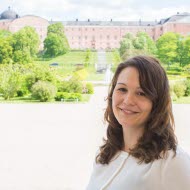EJT:s högre seminarieserie
On this seminar Professor Matthias Fuchs, Mid Sweden University will give a presentation entitled “Overcoming mechanist economic science ideology: From Cartesian science ideology towards a transformative and compassionate tourism science”. After the presentation we will have an open discussion.
Abstract:
Following the German philosopher and economist Karl-Heinz Brodbeck, the aim of this presentation is to challenge economists’ belief that their fundamental ontological assumptions are based on reasonable and consistent arguments. Having adopted the Cartesian ontology of modern science rooted in classical physics, economists presume that to ‘objective things’ can be assigned the abstract unit of ‘money’ in the form of a ‘price’. However, because of this flawed ontological transformation of social acts into a mathematical form, production processes as well as technological processes, all social acts of exchange and even the arts and human skills, such as caring and hospitality, stop being social processes, becoming instead abstract elements in ‘economic equations’. Consequently, the uniqueness and diversity of social acts of exchange are transformed into a comparable but empty unit: money. By referring to this untenable ontology failing to reflect the consequences of pecuniary socialization, it is shown that economic science is neither an empirically exact science (humans do not behave like mechanical objects of classical physics) nor value-free. Rather, economic science represents an implicit ethics. The presentation outlines the elements of a post-mechanist economic theory which defines ‘The Economy’ as a socio-communicative network for meaning creation. This theory is corroborated by findings from a nationwide survey of Norwegian micro-entrepreneurs in nature-based tourism (Fuchs et al. 2021). The presentation concludes with propositions for a transformative tourism science which reclaims the voice of those who are methodologically excluded as ‘things’ and treated as ‘incentive-objects’. For this aim, Buddhist philosophy is stressed where compassion is considered the highest form of knowledge, thus, ethics (axiology) is not separated from epistemology. Transformative tourism scientists empower humans in tourism-related contexts to use their awareness for their own cognizance (gnosis) and mental self-shaping to realize that there is neither a metaphysical (neo-Darwinian) nor a biological (‘the selfish gene’) reason condemning humans to a particular destiny.
The presentation follows the chapter: Fuchs, M. (2022). Reflecting on the ideology of a mechanist economic science: From ontological inconsistencies towards a transformative tourism science, In Alzua-Sorzabal, A., Femenia-Serra, F. & Xiang, Z. (eds.), Transitioning towards the future of tourism destinations, Thomson-Reuters A., Toronto (in print).
Welcome!
Anna-Karin Stockenstrand
Kontakt

